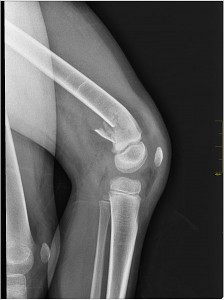 By Aditya K. Sreenivasan
By Aditya K. Sreenivasan
Peer Reviewed
The Huffington Post recently publicized a large study on the health habits of doctors. The study, a survey done by Medscape with 31,399 participants, revealed that more …

 By Aditya K. Sreenivasan
By Aditya K. Sreenivasan
Peer Reviewed
The Huffington Post recently publicized a large study on the health habits of doctors. The study, a survey done by Medscape with 31,399 participants, revealed that more …
By Reed Magleby, MD
Peer Reviewed
For many with type II diabetes, initiation of insulin therapy represents a devastating progression of their disease. Patients who are dependent on insulin require constant blood sugar monitoring, adherence to strict dosing algorithms, and up to 4 self-administered injections every day. According to a 2010 survey …
Please enjoy this post from the archives dated September 30, 2011
 By Vicky Jones, MD
By Vicky Jones, MD
A 40-year-old female presented to her primary care provider with a chief complaint of weight gain over the past year. She wants to be fully evaluated for any kind …
 By Karin Katz, MD and Loren Wissner Greene, MD, MA
By Karin Katz, MD and Loren Wissner Greene, MD, MA
Peer Reviewed
In 1964, Dr. Arnold Kadish used real-time glucose monitoring to adjust insulin infusion in a …
 By Sara Gallant
By Sara Gallant
Faculty Peer Reviewed
Each year in the US, an estimated 2.3–3.5 million individuals are homeless [1]. Homelessness has a complicated association with poor health. People at risk for …
 By Christopher Graffeo
By Christopher Graffeo
Faculty Peer Reviewed
In the age of prevention, primary care is more empowered than ever to educate patients on reducing their risk for common chronic diseases by promoting behavior …
 By Reda Issa
By Reda Issa
Faculty Peer Reviewed
As a medical student, I adjusted to waking up at 6 AM every day – with the help of coffee, of course. Living in New York …
 By Jenna Piccininni
By Jenna Piccininni
Faculty Peer Reviewed
Bisphosphonates are a relatively new medication having only been approved to treat osteoporosis in the US since 1995 [1]. In addition, large placebo controlled trials have, …